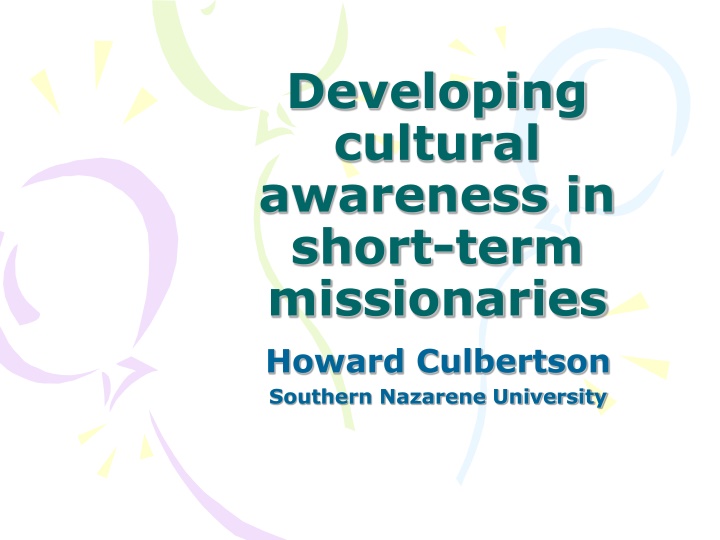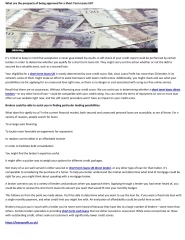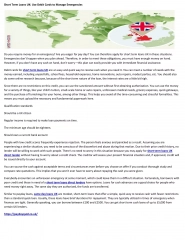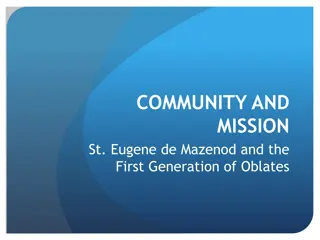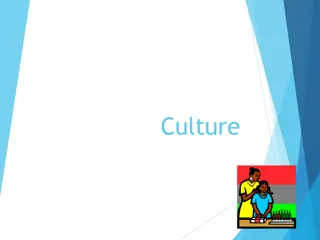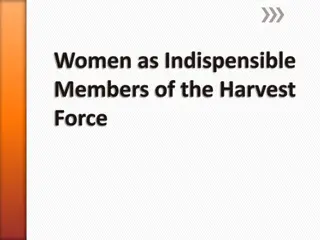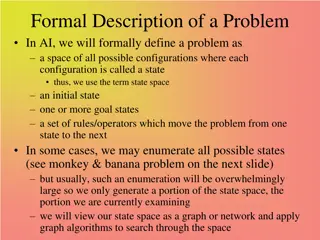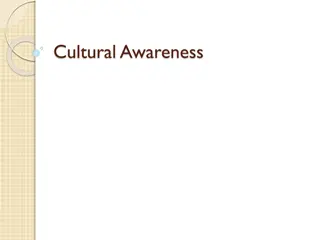Developing Cultural Awareness in Short-Term Missionaries
Short-term missions require a heightened level of cultural awareness to avoid common pitfalls and ensure effective cross-cultural engagement. This presentation explores strategies for overcoming challenges faced by short-term missionaries, emphasizing the importance of cultural intelligence and the need to view culture through deeper levels of understanding.
Download Presentation

Please find below an Image/Link to download the presentation.
The content on the website is provided AS IS for your information and personal use only. It may not be sold, licensed, or shared on other websites without obtaining consent from the author.If you encounter any issues during the download, it is possible that the publisher has removed the file from their server.
You are allowed to download the files provided on this website for personal or commercial use, subject to the condition that they are used lawfully. All files are the property of their respective owners.
The content on the website is provided AS IS for your information and personal use only. It may not be sold, licensed, or shared on other websites without obtaining consent from the author.
E N D
Presentation Transcript
Developing cultural awareness in short-term missionaries Howard Culbertson Southern Nazarene University
Short term versus long term Short-termers generally do not get second chance opportunities
How do we get beyond . . . ? Don t drink the water Don t go out alone; groups of 4 with 1 being a male Don t smile at males on the street whom you do not know
How do we keep from . . . ? Hardening stereotypes Reinforcing ethnocentrism
Can we make sure they do not come back saying . . . ? I need to be a great deal more thankful for all that I have They re just like us
CQ What are possible phrases for which CQ could be an acronym?
Culture quotient Cultural intelligence
CQ= culture quotient Culture quotient / Cultural intelligence Came into use about 4 years ago (Harvard Business Review) Widespread now in business world Short-term missions application David Livermore s Serving with Eyes Wide Open (2006)
Culture Quotient Cognitive (the head ) Physical (the body ) Emotional/Motivational (the heart )
Viewing culture as successively deeper levels of understanding -- diagram by Lloyd Kwast
Iceberg: analogy for culture with credit to Marc Siemens and Gary Weaver
CQ Components Knowledge Interpretation Behavior Perseverance
Getting people to actively process all four areas Case studies Someone from there Someone who s been there Emphasizing relationships with not for
Knowledge An understanding that culture can be seen as the software that runs our minds Some key issues High context versus low context Time orientation (event time vs clock time) Individualism / corporateness Power distance Uncertainty avoidance
Interpretation Turning off cruise control Holistic observation
Behavior How do we move to seeing this as an outcome rather than a starting point?
Perseverance Level of interest, drive and motivation to adapt cross-culturally
This PowerPoint presentation is available along with related materials and other PowerPoint presentations at http://home.snu.edu/~hculbert/ppt.htm
